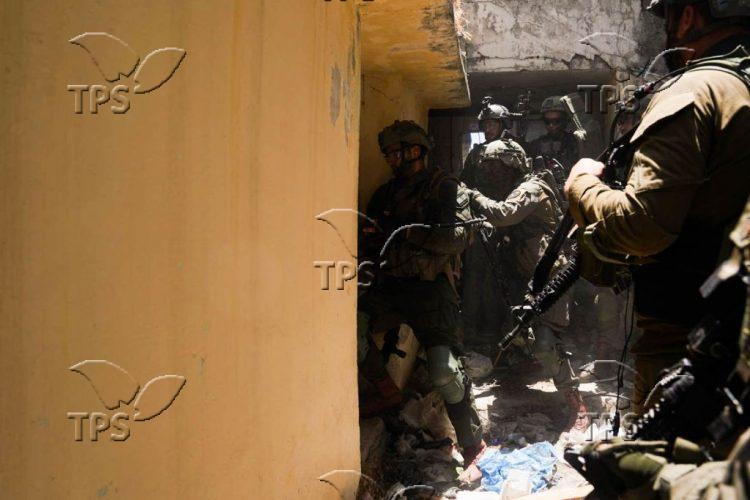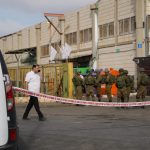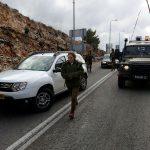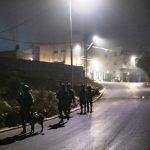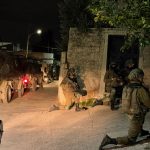Not a ‘One-Off’: Israel Will Continue ‘Mowing the Lawn’ in Jenin
Jerusalem, 6 July, 2023 (TPS-IL) -- Comments by Israeli leaders in the aftermath of a two-day incursion in the Jenin refugee camp indicate that the Israel Defense Forces will take repeated military action against Palestinian terror.
“At these moments we are completing the mission, and I can say that our extensive operation in Jenin is not a one-off,” said Prime Minister Benjamin Netanyahu on Tuesday evening as Israeli forces were leaving the Palestinian city. “We will eradicate terrorism wherever we see it and we will strike at it.”
Defense Minister Yoav Gallant made the same point on Wednesday when he stressed, “If Jenin returns to terror, we will return to Jenin – and it will happen much faster and with much greater power than what people might imagine. Whoever does not understand this today, will understand it very soon.”
Many Israelis refer to this type of conflict management as “mowing the lawn,” Dr. Emmanuel Navon explained to the Tazpit Press Service. Dr. Navon is a professor of political science at Tel Aviv University and a Senior Fellow at the Jerusalem Institute for Strategy and Security.
“The concept of mowing the lawn is that often, the IDF has to act either in the West Bank or in the Gaza Strip to fight terrorist organizations. But it doesn’t mean of course that as a result of the operation, the terror goes away. It keeps growing back. It’s like grass and they need to mow it again and again,” Navon said.
“Obviously this is not a long term solution,” he stressed, adding that in the absence of strong Palestinian leadership, “Israel has no other choice but to act over and over again. Hence the concept of mowing the lawn, because the terror groups rearm and regroup and rebuild and therefore those operations repeat themselves.”
The operation, Navon explained, was to “fill the void left by the collapsing Palestinian Authority. The forces of the PA are no longer able or willing to face the terrorist organizations. There’s no other choice for Israel but to act whenever there are clear indications of potential terrorist attacks.”
In 2023, 50 shooting attacks against Israelis came from the Jenin Camp. Since September, 19 terrorists have fled to the camp after carrying out attacks.
Asked about the timing of the raid, Navon said, “I think it was an issue of intelligence showing clear and immediate danger with the terror groups reaching an amount of weaponry amassed by the terror organizations in Jenin that turned into an immediate and clear danger.”
Israeli soldiers in the refugee camp uncovered bomb-making laboratories, stockpiles of explosives, a tunnel running from a mosque, and seized a home-made rocket launcher.
Navon said there was no way to know how long Israel might enjoy a lull in terror from Jenin before having to take action again because the Palestinian Authority is in “slow collapse” and “nobody knows how long Mahmoud Abbas will be around.” The Israeli raid, he said, “basically confirms that the PA is no longer in charge, and it will have an impact on how the PA is perceived by the Palestinians as being not only corrupt, but weak.”
As for the refugee camp, it will return to “business as usual,” Navon predicted, saying, “The terror groups now know what Israel knows about them, about their structure and their weapons, and therefore they are likely to change and modify their modus operandi.”
Navon was sharply critical of the United Nations Relief and Works Agency, which administers the camp of 18,000 Palestinians.
“UNRWA has always been part of the problem and not part of the solution. UNRWA brainwashes Palestinians to hate Israel and gives them the illusion that they have a simple “right of return” to Israel proper,” Navon said.
Established in 1953, the Jenin refugee camp is often referred to by Palestinians as the “Martyr’s Capital.” Between 2000-2003, during the Second Intifada, at least 28 Palestinian suicide bombers came from the Jenin camp.

